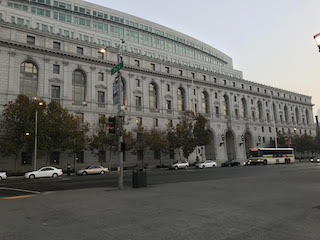It is not uncommon, in our experience for a police officer, often a CHP officer, to come upon a car on the side of the road or freeway in an area where parking is illegal or rare. The place maybe alongside a deserted stretch of road far from any houses or businesses.
The car may have stopped there because it ran out of gas, it had a mechanical malfunction (i.e. a flat tire) or a passenger or the driver needed to vomit or urinate.
When law enforcement stops at the location, the officer will often claim he or she immediately noticed the odor of alcohol (alcohol is actually odorless). The officer will then attempt to find out who was driving the car. The officer usually does not notice if the hood of the car is warm or attempt to ascertain when the car was last driven.
Sometimes, the driver leaves the scene to get gas or help, leaving behind a passenger to guard the car or be there in case help arrives. If the police happen upon this person left behind, who never drove, they may arrest him or her for DUI.
What can someone do if this happens? The DUI case of Kevin Smith illustrates what not to do, and by the First District’s analysis, helpful hints about what to do and how.
 1st Appellate District Court of Appeals San Francisco
1st Appellate District Court of Appeals San Francisco
On March 23, 2014, Vallejo Police Officer Jason Thompson was dispatched to investigate a gray Dodge flipped on its side along the side of the road, with its roof resting against the side of a house.
When Thompson arrived at the scene, he observed Smith, his girlfriend (Norsheequa Deocampo), and Deocampo’s cousin (Charlonda Anderson). They were still inside the vehicle. Smith was unconscious, pinned between the passenger seats. No one was in the driver’s seat. The fire department came and removed everyone from the car.
In Thompson’s presence, Smith told a paramedic that he had been driving the car. Smith’s cousins, Michael and Marico Garman, were following Smith down the road when suddenly, the car veered to the left and flipped over. The two cousins both said Smith was driving. Charlonda Anderson, a passenger in the car, told Thompson that Smith was driving, too.
Blood was drawn from Smith about an hour after the accident and measured at a blood alcohol content of 0.24%. Both Deocampo and Anderson were injured, Anderson suffering a broken femur.
Smith was charged with felony DUI (Vehicle Code §§ 23153(a) and 23153(b)). As to both counts, it was alleged that his BAC exceeded 0.20 percent (Vehicle Code § 23538(b)(2)) and that he proximately caused great bodily injury upon Anderson (Penal Code § 12022.7(a). It was also alleged that he suffered a prior DUI conviction (Vehicle Code §§ 23560, 23566).
At trial, Anderson testified that Deocampo, not Smith, was the driver at the time of the accident. The Garman brothers also testified that the did not tell Thompson that Smith was the driver and denied that they witnessed the collision. An aunt of Smith also testified at trial that she gave Smith’s car keys to Deocampo and told her to drive him home.
Deocampo was then called to testify at trial and she invoked her Fifth Amendment right to remain silent. Smith’s attorney then tried to introduce a statement made by Deocampo to a private investigator that she was the driver. Smith’s attorney argued that the otherwise hearsay statement was admissible as a declaration against interest as an exception to the hearsay rule.
The judge denied the request to admit Deocampo’s out-of-court statement, saying the totality of the circumstances prevented it, especially since she was available to testify in court and refused to submit to cross-examination by the prosecution. Moreover, she appeared to be biased, as she was the girlfriend of Smith.
Smith was then found guilty by the jury and placed on probation for five years, with a condition of 365 days in county jail and ordered to pay $22,862.54 in restitution.
Smith appealed the judge’s ruling to exclude Deocampo’s out-of-court statement. The First Appellate District, in People v. Kevin Joseph Smith (2017 DJDAR 3092) denied the appeal, affirming the trial court. The appellate court noted that the trial court’s decision to admit or exclude evidence is a matter committed to the discretion of the trial court judge “and will not be disturbed except on a showing the trial court exercised its discretion in an arbitrary, capricious, or patently absurd manner that resulted in a manifest miscarriage of justice.” People v. Brown (2003) 31 Cal.4th 518, 534; see also Evidence Code § 1230.
Here, given all the consistent statements originally that Smith was the driver, the appellate court found no abuse of discretion in excluding the statement of Deocampo, as it seemed unreliable in the discretion of the trial court judge.
The citation for the First Appellate District Court ruling discussed above is People v. Kevin Joseph Smith (1st App. Dist., 2017) 10 Cal.App.5th 297, 215 Cal. Rptr. 3d 904.
 1st Appellate District Court of Appeals San Francisco
1st Appellate District Court of Appeals San Francisco